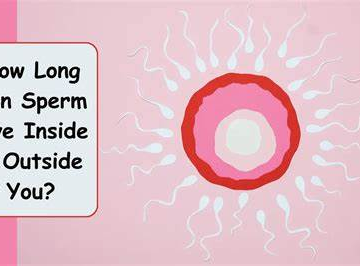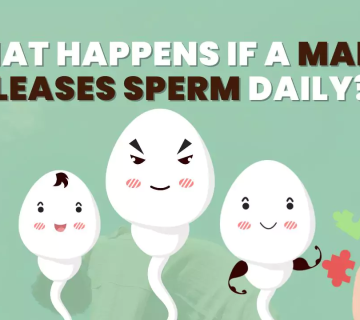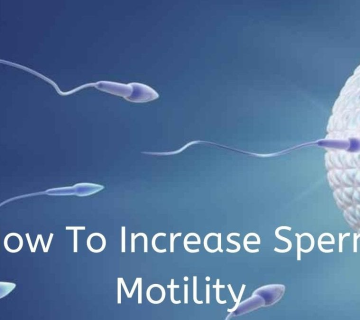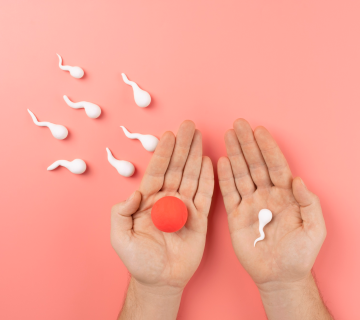
Does Drinking Alcohol Lower Sperm Count? What You Need to Know
When it comes to fertility, there’s a lot of focus on women, but men’s health plays a crucial role too. One common question that comes up for men who are trying to conceive is: Does drinking alcohol lower sperm count? You might have heard mixed opinions on this topic, so let’s break down the facts and find out what alcohol really does to male fertility.
Understanding Sperm Production
To grasp how alcohol affects sperm, it’s helpful to understand how sperm production works. Every day, your body produces millions of sperm in the testicles. This process, known as spermatogenesis, takes around 64 days. Sperm is stored in the epididymis and then released during ejaculation. Ideally, you want your sperm to be healthy, abundant, and mobile to increase the chances of conception.
Dr. Michael Thompson, a urologist specializing in male fertility, explains, “Sperm production is a delicate process influenced by multiple factors, including hormones, lifestyle, and environmental exposures.”
How Alcohol Affects Sperm Count
Alcohol can negatively impact sperm production, quality, and overall fertility. But how exactly does it do this? Here’s a closer look at the key ways alcohol affects sperm count:
- Lower Testosterone Levels: Drinking alcohol regularly can reduce the production of testosterone, a hormone essential for sperm production. When testosterone levels drop, sperm count and quality can decline.Dr. Emily Rogers, a reproductive endocrinologist, explains, “Testosterone plays a vital role in the production of sperm. Consuming excessive alcohol can disrupt this hormonal balance.”
- Decreased Sperm Quality and Motility: Alcohol can affect the quality and motility (movement) of sperm. Sperm that aren’t moving well or are of poor quality are less likely to fertilize an egg.”Studies have shown that even moderate alcohol consumption can impact sperm motility, which directly affects fertility,” says Dr. Michael Lawson, a fertility specialist.
- Damage to Sperm DNA: Chronic alcohol use has been linked to increased DNA fragmentation in sperm. This means that the genetic material within sperm may be damaged, which could affect the embryo’s development if conception occurs.Dr. Lawson adds, “Alcohol has a toxic effect on sperm DNA, which can result in developmental issues for a potential pregnancy.”
- Changes in Semen Volume: Regular drinking can reduce the overall volume of semen, which means fewer sperm are released during ejaculation.Dr. Rogers notes, “Low semen volume can make it harder for sperm to reach and fertilize an egg.
How Much Alcohol is Too Much?
The impact of alcohol on sperm count depends largely on the amount consumed. While occasional drinking may have minimal impact, heavy drinking or binge drinking is much more likely to affect fertility.
- Moderate Drinking: According to the Centers for Disease Control and Prevention (CDC), moderate drinking means up to one drink per day for women and up to two drinks per day for men. While this level of consumption may not drastically impact sperm count, it can still have some negative effects over time.
- Heavy Drinking: Regular heavy drinking (more than four drinks per day) can have serious effects on male fertility. This level of consumption has been shown to lower testosterone levels, decrease sperm quality, and impair overall fertility.Dr. Thompson states, “Men who regularly engage in heavy drinking have a higher risk of fertility problems, including low sperm count and poor sperm motility.”
Other Health Risks from Alcohol
Apart from affecting sperm count, alcohol can also contribute to other health issues that may indirectly affect fertility:
- Obesity: Heavy drinking often leads to weight gain, and being overweight can impact hormone levels, further affecting sperm production.
- Liver Damage: Chronic alcohol use can damage the liver, which plays a role in hormone regulation. A damaged liver may result in hormonal imbalances that reduce sperm production.
- Increased Stress: Alcohol can disrupt sleep patterns and contribute to higher levels of stress, both of which can negatively affect fertility.
Is It Safe to Drink While Trying to Conceive?
If you’re actively trying to conceive, it’s best to limit alcohol consumption. While an occasional drink is unlikely to cause significant harm, regular or excessive drinking can lower sperm count and quality, making it harder to get pregnant.
Dr. Rogers advises, “The best approach is moderation. If you’re trying to conceive, cutting back on alcohol or avoiding it altogether will improve your chances of successful conception.”
Tips for Boosting Sperm Health
Here are some healthy lifestyle changes that can help improve sperm count and fertility:
- Limit Alcohol Consumption: Stick to the recommended guidelines or avoid alcohol completely if you’re trying to conceive.
- Eat a Fertility-Friendly Diet: A diet rich in antioxidants, healthy fats, and vitamins like Vitamin C and Vitamin E can improve sperm health.
- Exercise Regularly: Regular physical activity helps maintain a healthy weight and hormone balance, both of which are important for fertility.
- Manage Stress: Stress can negatively impact sperm production, so try to incorporate relaxation techniques like meditation or deep breathing into your routine.
- Get Enough Sleep: Sleep is crucial for hormone regulation, so aim for 7–9 hours of quality sleep each night.
- Quit Smoking: If you smoke, quitting is one of the most important steps you can take to improve sperm health.
- Stay Cool: Avoid activities that overheat the testicles, such as hot tubs, saunas, or wearing tight clothing for extended periods.
Conclusion
Drinking alcohol can lower sperm count and affect sperm quality, making it more difficult to conceive. While occasional, moderate drinking is unlikely to have a major impact, excessive drinking can lead to hormonal imbalances, reduced sperm motility, and damage to sperm DNA.
If you’re trying to have a baby, it’s a good idea to limit alcohol consumption and focus on maintaining a healthy lifestyle. By doing so, you can improve your chances of successful conception and boost your overall fertility. If you have concerns about your sperm count or fertility, it’s always best to consult a healthcare professional for personalized advice.
Remember, small changes can make a big difference in your fertility health. Don’t let alcohol stand in the way of your dream to start a family.



